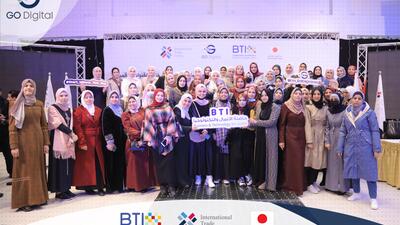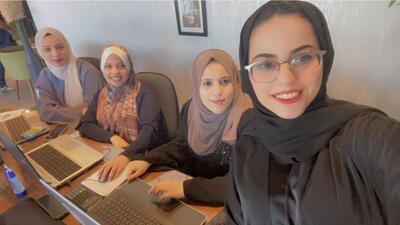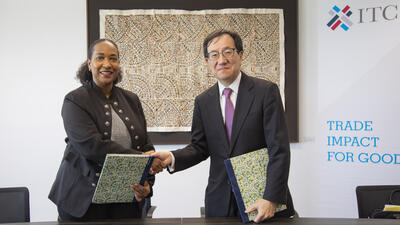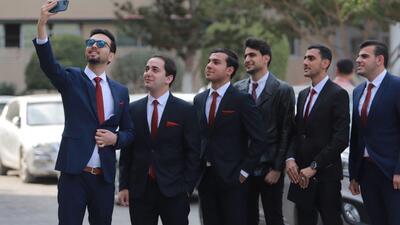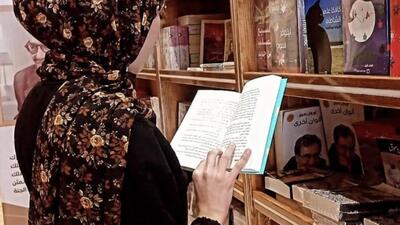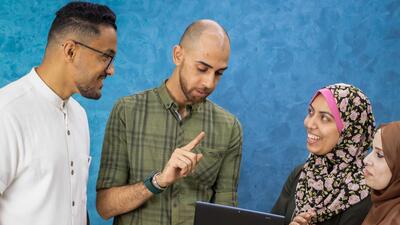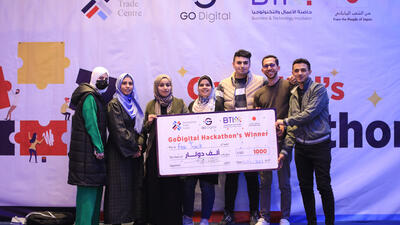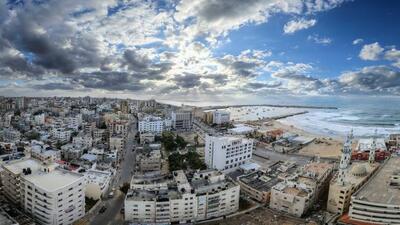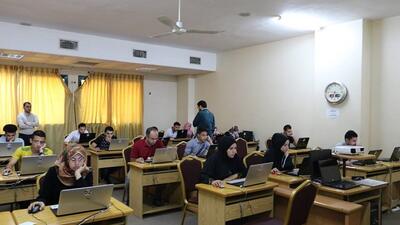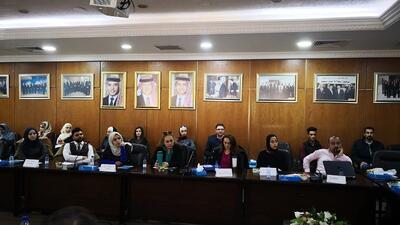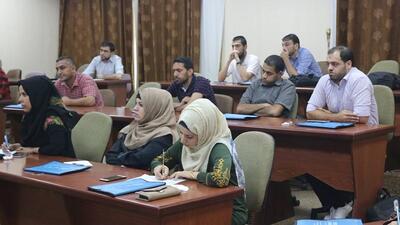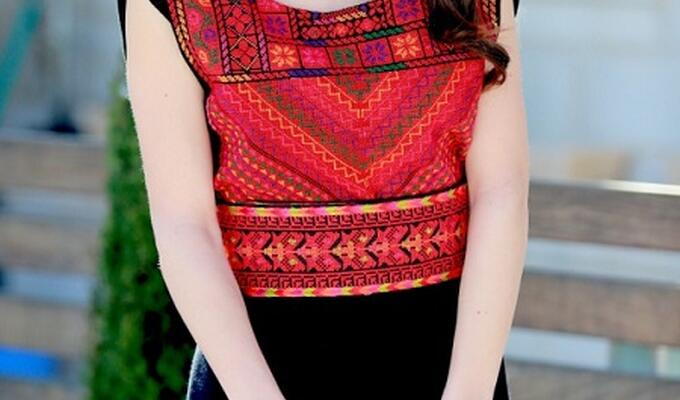
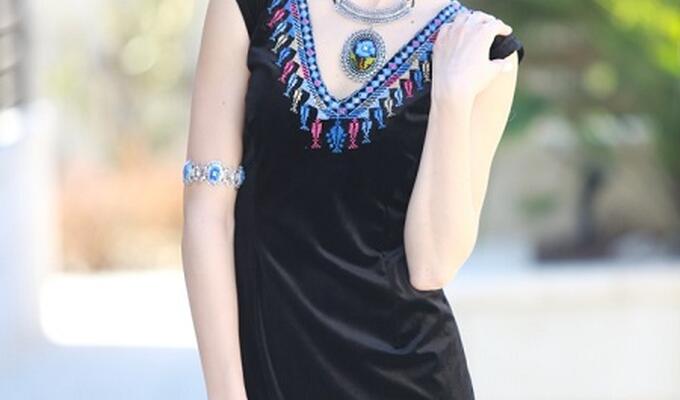
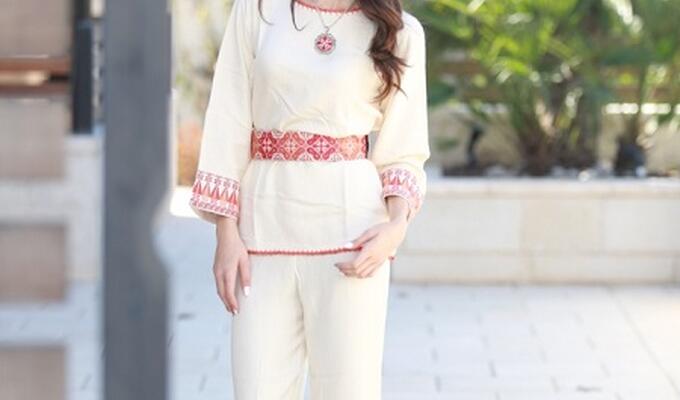
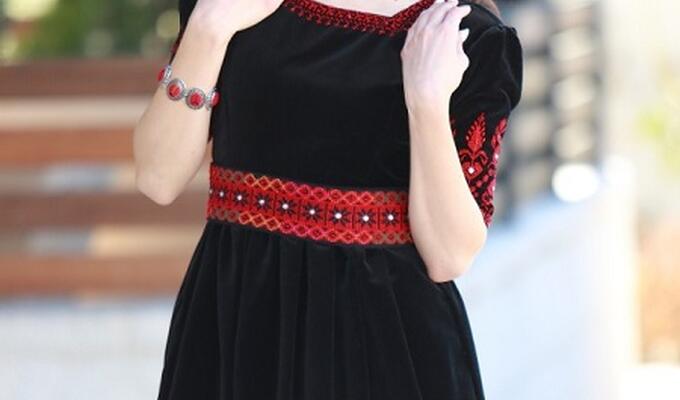
A glimmer of hope for Palestinian women
Traditional embroidery has evolved into a significant source of income for a large number of Palestinian women.
Many women have seen this culturally important handicraft as a great opportunity to start their own businesses, updating prized techniques and symbols for a new generation. While successful embroidery businesses would allow these women to generate an income for themselves and their families, in reality however, few have been able to thrive.
Started in March 2014, the International Trade Centre (ITC) and the Business Women Forum in Palestine have partnered on a project, Enhancing Women’s SME Development in the State of Palestine (EWED), which aims to improve competitiveness of women-owned SMEs and increase their participation in export value chains. This is achieved by enhancing the knowledge and skills of women-owned SMEs to produce competitive goods and services, and through strengthening the capacity of the Business Women Forum (BWF), a key trade support institution, to provide more effective services responding to their clients’ needs.
Rehab Daqawieh, owner of Artezana for Palestinian Embroidery and handicrafts, was one of these Palestinian women. Rehab started her business in 2004, by specializing in producing and selling traditional and modern Palestinian crafts as well as dresses, blouses, handbags, accessories and scarves. In addition to women’s clothing, Artezana also produces and sells home accessories such as frames, cushions, pillows, jewellery boxes and ornaments.
Artezana is a rapidly growing company managed by well-trained women who run the daily work, design the garments and supervise the stitching. Rehab Daqawieh’s passion for Palestinian embroidery has enabled her to develop the business and transform it into a well-known business. Rehab is an ambitious woman looking forward to placing her products in international markets.
More importantly, Artezana employs 200 Palestinian women from rural areas who were affected by the construction of the separation wall. Today, these women are now empowered and generate more income for their families while working from their own homes.
Rehab, like many other Palestinian women, faces many challenges for the market and sells her products internationally. The geographical and social constraints create a lack of resources to effectively market the product outside Palestine and the difficulties of importing raw materials lead to high costs.
Palestinian women therefore require more knowledge about trading through formal channels to make their products more competitive internationally.
The EWED project works to help Palestinian women acquire these capacities to improve their SMEs. Through this project, Rehab has participated in many valuable activities. She participated in more than seven trainings and workshops that focused on designing and planning a business strategy, an export business plan, export packing, financial management and many other aspects of trade. Rehab was able to participate in a design workshop for four days in London School of Art and four more days at New York’s Parsons School of Design, where she worked with professional designers and students from both schools to develop her products. She participated in a New York fashion show that was organized by ITC in the UN building in New York, where she showcased pieces from her Artezana collection. This event provided Rehab with great exposure and outreach, especially in the local market, and led to an estimated 10% sales increase in Rehab’s business.
With these experiences, Rehab developed her business strategy and skills in designing under the supervision of ITC. She gained more knowledge about international markets and expanded her network and connections inside and outside of Palestine. The networking allowed her to work with a woman based in Qatar after they were connected through a US fashion industry, representative Rehab met at the show in New York.
Through EWED, Rehab had the opportunity to translate her inspiration into action and to contribute her vision to fashion and design. Today, Rehab Daqawieh is in the process of developing new designs inspired by her past experiences.
“It is a unique project in Palestine, and the results already achieved are definitely encouraging,” said ITC project manager Eman Beseiso. “Women-owned SMEs are very committed and eager to expand the markets for their newly designed products. Our current focus is on promoting the Palestinian products in the European market and in the Gulf region. We are working to help SMEs enter new markets by integrating in their design functionality, aesthetics and heritage.”




